Articles
Reviews
Issue Editorial Board


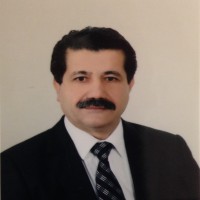

Issue Reviewers



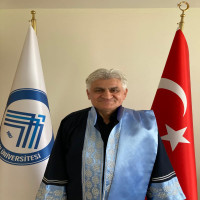
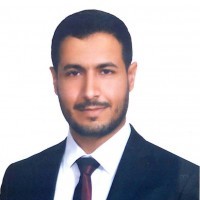
 0000-0003-0427-2006
0000-0003-0427-2006



 0000-0001-5500-4226
0000-0001-5500-4226


 0000-0001-7586-2754
0000-0001-7586-2754
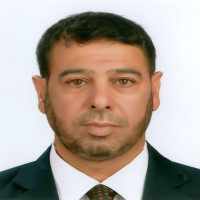
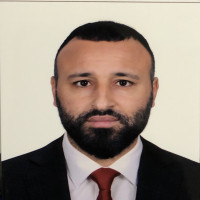
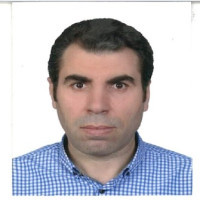
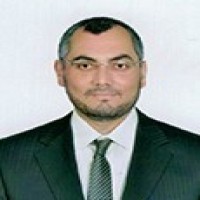
 0000-0002-7681-2537
0000-0002-7681-2537



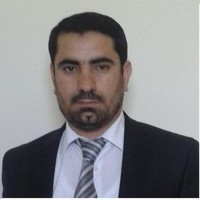
 0000-0002-3748-8033
0000-0002-3748-8033
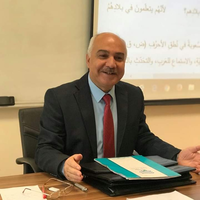
 0000-0003-3659-6267
0000-0003-3659-6267
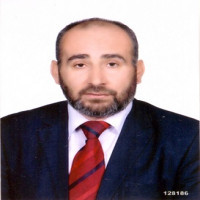
Aim & Scope
The people of our century, who put positive science in the place of religion and made the science of things up to the atom of matter, filled the emptiness that occurred in their hearts by turning away from religion with worldly passions. He forgot himself while he was scrutinizing everything. The human being, who should be a touchstone for everything, is evaluated with things today. As a result of this, the feelings of sincerity, love and love are erased from human life and replaced by grudge, passion, hatred and love of matter. A psychologist who will analyze the mental depression of the person who ended his life with a bullet he put into his brain while he was in possession of millions, a sociologist who will reveal the causes of increasing social crises day by day, and a doctor who will offer medicine for all social diseases has not yet arrived.
The materialistic people of today, who understand civilization as technical and economic superiority, are troubled. Those who have to give direction to the society look for the crisis in matter, they forget the meaning aspect of the morphological body. However, the problem of the people of our century is, first of all, spiritual. Anything given to a person who is not satisfied spiritually will only increase his passion for him.
Today, the Islamic world of approximately one and a half billion people needs a new dynamism. This dynamism, fourteen centuries ago, Hz. It will begin with re-igniting the torch that Muhammad (saas) lit from Hira. Re-examining the decaying works and destroyed art monuments in the libraries and reaching the depth of soul and meaning in them will be the first good news of this birth.
The twentieth century has been the scene of many ideas and ideological disputes, especially for Turkey and the Islamic world. All sorts of ideologies were discussed, from Democracy to Socialism, from Fascism to Communism; every idea and thought was presented to the publishing market. But let us regretfully note that Islam was the least emphasized and least known among them. His worldview, understanding of science, spiritual and cultural values were not sufficiently presented to the idea market. Our publication will be in the direction of ensuring that Islamic thought takes place among these currents of thought.
Our journal is open to all kinds of ideas and arts that are not against Islam. Science is the language of Islam. It is our aim to examine the issues in a comparative way with Islamic thought rather than to deal with them abstractly. However, even if they are not Islamic, articles that have the identity of being scientific are not to be included in our pages. Maximum sensitivity will be shown to ensure that the expression is plain, in accordance with the rules of the Turkish language, and free from a fabricated language. In this respect, our journal will be the garden of ideas of the connoisseurs of science and knowledge, who express the most beautiful ideas in the sweetest language, I hope.
Sa'y ü diligence is from us, tawfiq and grace are from Allah.
Writing Rules
JOURNAL WRITING RULES AND PUBLICATION PRINCIPLES
Journal of Islamic Civilization (IMD) is a national refereed journal published twice a year (July and December) once every 6 months. Studies in English and Turkish are accepted in the journal. In the articles to be sent to IMD, the authors must comply with the journal publication principles and writing rules. Studies that are not prepared in the specified content are not included in the evaluation process or may be excluded from the evaluation at any stage of this process.
All responsibilities of the works published in the journal (language, style, content, etc.) belong to their authors. In order for the articles sent for evaluation to be accepted, they must not have been published anywhere before. The opinions in the published articles belong to the author, and the responsibility in terms of legal and scientific ethics rests entirely with the author. Articles published in the journal are licensed under a Creative Commons Attribution-NonCommercial 4.0 International License. Articles are published after the positive opinion of at least two referees using the peer-review system. In line with the reports from the referees and the editorial review, it can be decided to publish the article, request correction from the author, or reject or reject the article. If a correction is requested from the author, the correction must be made on the specified date and sent again.
Studies should be prepared in "Microsoft Office Word" program in A4 size. Considering the format of the journal, the submitted works, pictures, figures, maps, etc. including its annexes, min. 7000 max. It should not exceed 8000 words. It should be written using 12 font size, “Times New Roman” character and 1.5 line spacing. leaning on both sides; indent left/right 0 cm. The paragraphs should have a starting indent of 1, and a 6 pt space should be left before and after the paragraph. In their work, authors should include title, name-surname, institution and e-mail information in the form of footnotes. 150-200 words of Turkish, English and Arabic abstracts, titles and at least 4 keywords (alphabetically) should be added to each work. Main headings and subheadings in bold (bold) and left justified (unindented) 1., 1.1., 1.1 .1., 1.1.2., 1.1.2.1. should be numbered in decimal form. Style in explanation footnotes, 1-spaced; just sideways; paragraph spacing is 0 pt; It should be expressed using 10 point font and Times New Roman font.
Citations and references may be in-text or with footnotes. Whichever citation system will be used in the study, the whole text is cited according to this citation system.
Citations are made according to the ISNAD Citation System: ISNAD Citation System uses both the FOOTNOTE citation system with numbered citations at the end of the page (with Ibid, similar to the Chicago citation system), and the citation system in parentheses between the text or at the end of sentences, in TEXT (like Apa citation system) It supports the citation system, that is, you can choose FOOTNOTE or INTEXT citation styles in your article, provided that the same citation system is used in the entire article. However, all citation types (Book, Edited Book, Book Chapter, Article, Doctoral Thesis, Master's Thesis, etc.) must comply with the citation rules of the citation system you prefer in the ISNAD citation system. Attribution rules are included in these links. Accordingly, make the citation arrangements before submitting the article. Check it out by going to https://www.isnadsistemi.org/. Attribution rules of the relevant systems are included in these links;
In-text (APA-like) https://www.isnadsistemi.org/guide/isnad2/isnad-metinici/ or
It can be made with footnote (similar to Chicago system) as https://www.isnadsistemi.org/guide/isnad2/isnad-with footnote/.
PUBLICATION RIGHTS AND ETHICS
The opinions and thoughts in the submissions that are accepted to be published after the peer-review process are positive belong to the authors and do not bind the journal and the editors. IMD is not the bearer of any opinion and publishes according to the rules of impartial publishing and scientific ethics. IMD encourages authors to share the data obtained as a result of their research, while remaining within the requirements of universal and legal criteria for the protection of personal rights, as well as scientific ethics and attribution rules. In this context, it adopts the Budapest Open Access Initiative Statement. By submitting your article to the journal, you agree to have your work screened for plagiarism. The author is responsible for the thoughts and opinions expressed in the articles published in IMD and for compliance with scientific ethical rules. The opinions expressed in the articles published in IMD are the opinions of the authors, not those of IMD or the editorial board.
Ethical Principles and Publication Policy
Publication Ethics
The journal of Islamic civilization adopts an open access policy.
The publication processes of the Journal of Islamic Civilization are based on the impartial production, development and sharing of information using scientific methods.
Peer-reviewed articles are studies that ensure the application of the scientific method and impartiality. All components of the publication process in the realization of scientific production; The publisher, editors, authors, reviewers and readers are required to abide by the ethical principles. In this context, the publication ethics and open access policy of the Journal of Islamic Civilization are also in line with the guidelines and policies published by the Committee on Publication Ethics (COPE) in open access (For example, the "Committee on Publication Ethics (COPE) Code of Conduct and For Journal Editors". Best Practice Guidelines; “Code of Conduct and Best Practice Guidelines for Journal Editors” and “COPE Best Practice Guidelines for Journal Editors”) require that all components of the publication process comply with ethical principles.
If situations such as the manipulation, distortion and use of fabricated data used in the articles are detected, this situation will be reported to the institution where the article author works, and the article will be rejected. Our journal has the right to request the output files of the analysis results from the authors according to the feedback given by the editor and/or the referees.
Publisher's Ethical Responsibilities
The Islamic Civilization Foundation, the publisher of the Journal of Islamic Civilization, is a non-profit foundation pursuing the public interest.
The Journal of Islamic Civilization (IMD) was first published in August 1967. He has been in publishing activity until September 1982 with 5 broadcasting periods; In this context, it has brought 44 issues to the academic world and related literature. IMD has made important contributions to the formation of a literature in this field by protecting the Islamic civilization, culture, art and literature. At this point, in the publishing activities of the magazine, Turkey was handled as the "last bastion of Islam"; It has been put at the forefront in Islamic Civilization. In addition, at a time when discussions on Islamic economics took place, Islamic and economic issues such as interest, banks, and workers' rights were also included in the magazine. Various studies have been included in a wide range of fields from economics to law and politics. The journal aimed to progress on a scientific ground by staying away from daily politics.
The Student and Alumni Associations, which were founded by the graduates of the Higher Islamic Institute, were gathered under the umbrella of the High Islamic Institutes Student Federation in 1966 under the leadership of Cahid Baltacı and his friends. A magazine called "ISLAMIC CIVILIZATION" began to be published by this Federation. A “Foundation” was founded, bearing the name of this journal, which is the only publication in this field. The establishment of the ISLAMIC CIVILIZATION FOUNDATION was registered on 24.01.1974 with the decision number 1974/13 of the Istanbul 8th Civil Court of First Instance. Islamic Civilization Magazine, which started its publication life under the umbrella of the federation in 1966, was transferred to the Islamic Civilization Foundation in 1974 and continued its publication life until 1982, when the High Islamic Institutes were transformed into Faculty. The short interregnum period came to an end in 1989 when Reşat Erol took office in the Foundation Management and moved to the Istanbul Faculty of Theology Campus to meet with students, lecturers and graduates in the Faculty Mosque Complex. During this period, it made a new breakthrough by hosting many projects and events together, hand in hand. He carried out joint activities and organizations with the Istanbul Faculty of Theology Management and the Theology Foundation.
Responsibilities of the Editorial Board of the Journal of Islamic Civilization
• Every article submitted to the Journal of Islamic Civilization is reviewed by the Editorial Board.
• The Editorial Board of the Journal of Islamic Civilization strives to continuously improve the Journal and increase its publication quality.
• The Editorial Board of the Journal of Islamic Civilization ensures the determination and implementation of journal policies such as publication, blind refereeing, evaluation process, and ethical principles.
• The Editorial Board of the Journal of Islamic Civilization is responsible for taking precautions regarding unscientific and unethical behaviors, plagiarism, and citation scams during the publication process of articles and journals.
• The Editorial Board of the Journal of Islamic Civilization keeps the records of each article and correspondence about the journal in electronic or printed form.
Ethical Responsibilities of Editors, Assistant Editors and Field Editors
• Editors strive to meet the information needs of referees, authors, researchers, practitioners and readers, respond when necessary, and act according to the principles of clarity in matters that require correction and explanation during the publication process.
• Editors, when deciding whether to publish the articles, take care to ensure that the articles are original and contribute to the scientific literature, readers, researchers and practitioners.
• Editors take into consideration the original value of the articles, their contribution to the field, the validity and reliability of the research method, the clarity of the narrative, and the purpose and scope of the journal when making a positive or negative decision about the articles.
• Editors apply the policies of blind refereeing and evaluation process, which are among the publication policies of the journal, keep the identities of the referees confidential, and ensure that each article is evaluated impartially and on time.
• Editors submit the articles by taking into consideration the field of expertise of the editors and referees, and support the impartial and independent evaluations.
• Editors consider whether there is a conflict of interest between the editors, the referees and the author(s) for the unbiased evaluation of the article.
• Editors look for a wide range of referee pools and to be constantly updated.
• Editors prevent academic etiquette and unscientific reviews.
• Editors ensure that the journal publication processes are operated in accordance with publication policies and guidelines, inform those in charge of the developments in publication policies, and prepare a training program when necessary.
• Editors communicate effectively with everyone involved in the publication process and organize meetings at regular intervals.
• Editors ensure the protection of personal data in the evaluated articles; they protect the individual data of authors, referees and readers.
• Editors; They pay attention to the protection of human and animal rights in their articles, they care about documenting the explicit consent of the participants of the article, they reject the article when they do not have the approval of the ethics committee for the participants of the article, and permission for experimental research.
• Editors; take action against misconduct. When there are complaints about misconduct, he makes an objective investigation and shares the relevant findings.
• Editors ensure that errors, inconsistencies or misdirections in articles are corrected.
• Editors defend the rights of the author(s) in the published articles. In addition, they take the necessary measures to ensure that the content of the published articles does not violate the intellectual property rights of other publications; They perform the authenticity-similarity check.
• Editors take into account the consistent criticisms of the articles published in the Journal, and give the right to reply to the author(s) of the criticized articles.
• Editors also take into account studies with negative results.
• Editors examine the complaints submitted to the Journal and make the necessary explanations.
Ethical Responsibilities of Referees
In the article evaluation process of the Journal of Islamic Civilization, the referee(s) of the author(s) do not know the authors and the two-way blind refereeing principle is applied, the referees cannot communicate directly with the authors; Article evaluation forms, notes on the text and correction requests are forwarded to the author(s) by the editors through the journal management system. The referees who will evaluate the articles submitted to the Journal of Islamic Civilization should bear the following ethical responsibilities:
• Reviewers should only accept to evaluate articles related to their field of expertise.
• The referees should make the evaluation with impartiality and confidentiality. Pursuant to this principle, they should destroy the articles they have reviewed after the evaluation process and use them only after they are published. Nationality, gender, religious belief, political belief and commercial concerns should not impair the impartiality of the assessment.
• When the reviewers understand that there is a conflict of interest, they should refuse to evaluate the article and inform the editors.
• Referees should make the evaluation in a constructive language in accordance with academic etiquette; Personal comments that contain insults and hostility should be avoided.
• The referees should evaluate the article for which they accepted the evaluation within the time limit.
Ethical Responsibilities of Authors
Ethical responsibilities of the author(s) applying for an article to the Journal of Islamic Civilization:
• The author(s) should not submit an article that they have published elsewhere or sent for publication, or more than one article at the same time to the Journal of Islamic Civilization.
• The author(s) must submit an original article to the Journal of Islamic Civilization.
• The author(s) should refer to the sources they used during the writing of the article correctly in line with ethical principles.
• The names of people who do not contribute to the article should not be written as authors, and it should not be suggested to change the author order, remove an author, or add an author of an article applied for publication.
• Persons who have a conflict-of-interest regarding the article applied for publication should be reported to the editors.
• If information or raw data are requested from the author(s) during the evaluation process, they should submit the expected information to the Editors.
• The author(s) should document that they have obtained the right to use the data they use in their articles, the permissions for the research-analysis or the consent of the participants on whom they have researched.
• The author(s) should contact the editor to inform, correct or retract when they notice an error in an article that is in the evaluation and early view stage or published in electronic media.
• The author(s) has obtained ethics committee approval for studies that require data collection through quantitative or qualitative methods such as experiments, questionnaires, scales, interviews, observations, focus group studies, which require an ethics committee decision; Ethics committee name, decision date and number should be stated on the first and last page of the article and in the method section, and the document showing the ethics committee decision should be uploaded to the system with the application of the article. In addition, the article should include information about obtaining the informed consent/consent form in the case reports.
• The author(s) should present in the article evidence of their care for ethical principles in the data collection process (such as obtaining their permission to use other people's documents such as scales, questionnaires, photographs). It should be stated in the articles that research and publication ethics and copyright regulations for intellectual and artistic works are complied with. If the research was carried out on human and animal subjects, it should be stated that the research was carried out in accordance with international reports, guidelines, etc.
• Ethics committee approval is not required for review articles from the author(s). However, in articles that do not require an ethics committee decision, it should be stated on the first-last page of the article and in the method section that an ethics committee decision is not required.
Notifying the Editor of the Situation Not Complying with the Ethical Principles
In the case of a behavior that does not comply with the ethical principles regarding the editors, referees, authors in the Journal of Islamic Civilization, or an unethical situation regarding an article in the evaluation process, early appearance or published, it should be reported to imdergisi@gmail.com.
Price Policy
Free
Journal of Islamic Civilization is licensed under a Creative Commons Attribution-NonCommercial 4.0 International License.
Our journal is indexed by EBSCO (International Area Index)


